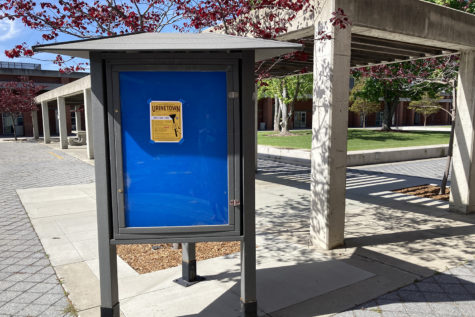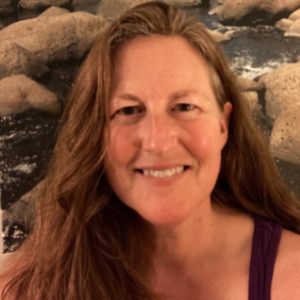‘Very clear lack of communication’ at City College, students say
As City administrators offer suggestions on staying connected, students still struggle to find the answers they need
City College students report they have struggled to get the information and answers they need to navigate the maze of information and deadlines required to complete their programs, degrees, certificates and transfer requirements. Canva graphic by Kathy Archibald/City Times Media
April 19, 2022
Pasquel Robles, a freshman philosophy student at San Diego City College, had to find out from the Department of Veterans Affairs that there was a problem with his education plan.
“I had no idea that I was still at Miramar (College) when I (was taking classes at City) until I talked to the VA,” he said.
Students like Robles are providing personal examples of how administrators are not delivering information to students in a way that meets their needs.
The reliance on unofficial, online communication has the potential to disenfranchise those who most need information. And many options sacrifice students’ data privacy for the allure of convenience.
Vice President of Student Services Marciano Perez, Jr. said the confusion between where students take classes and their “College of Record” – typically the college where they first enrolled – results in a number of calls to his office.
Perez said one of the most important ways students can stay in the loop at City is by ensuring their College of Record is current because important information like financial aid and email notifications are also based on the designation.
But this seemingly simple task of making a change opens up a myriad of considerations.
One difficulty is the nature of the three credit college campuses that make up the San Diego Community College District.
Like Robles, many students take classes on multiple campuses, and this can vary from semester to semester.
During the spring 2021 semester, only 50% of City students were enrolled only at City. Of the remaining half, 35% were also taking classes at either Mesa or Miramar and 15% at all three, according to the SDCCD public profiles website.
Secondly, the process of changing a student’s College of Record affects a student’s educational plan, as Robles learned.
The process itself may also be a stumbling block.
Prior to 2019 a student could do so in the admissions and records office, according to Janay Patton, a senior student services assistant at City.
However, since the shift to the Campus Solutions software, which students access via the mySDCCD portal, students must go through the financial aid office to make the change, Patton said.
In an email from City College Financial Aid, a student was told to check with a counselor to ensure the new College of Record offers “the degree/major you will be graduating in,” and if so “please visit our office as we will need a written statement from you requesting the change.”
Meanwhile, students who take classes at a college other than their College of Record remain off the list of email notifications sent by either of the two remaining campuses — even if they are enrolled there.
Perez said he has fielded questions about financial aid when a student asks, for example, why they did not receive an email their peers did or were deemed ineligible for a certain opportunity at City because they were officially a Mesa student.
He said in these cases he will work with the district to try to ensure the student is part of their college’s financial aid distribution.
To address this concern, Perez said he recommends students follow City College on social media – Instagram, Twitter or Facebook – especially if they take classes at multiple campuses or their College of Record is not City.
“Pretty much everything we send out another way always goes on social media,” Perez said.
Unfortunately, this is not an option for Jazmin Aceves, a behavioral sciences major at City, who said she does not have social media.
Aceves said she remembers communication being much better when she started at City in 2019. “People were funneling information to me any way they could,” she said.
Professors had whiteboards filled with helpful information like internships or the food drive, and could provide an easy link for a counselor appointment, she said.
But trying to navigate the website to get a counselor appointment is extremely difficult now, Aceves said.
Even when students attempted to get help during an English class recently, it became a “huge issue,” she said.
Perez acknowledged the website can be hard to navigate.
Additionally, students must try to decipher not only the City website but the SDCCD site and the mySDCCD portal, which contains necessary financial and academic information like a student’s all-important College of Record.
Obtaining information about upcoming events from the City website can present a challenge because all of the information comes from individual departments and programs, some of which are put together by staff who are part-time or volunteering in that role, Perez said.
This may explain why some events that occurred in 2022 and appeared on social media have not been updated on the website, such as the Social Justice and Education conference or City Women Rock, and the entire Activities and Entertainment section, which all appear to still house information from 2020.
Events like these, or the upcoming April 21 Open House, might only be known to followers who happen to see a social media post.
Join us for our Community Open House | Thurs, April 21 | 9:00am-1:00pm
Rsvp: https://t.co/uP8SxXGUnH —Come see what City College has to offer.
Campus Tours | Exhibits | Demonstrations | Resource Fair | And More!
AND don't miss or 18th Annual Student Project & Research Symposium pic.twitter.com/xwpRCr6CqN— SanDiegoCityCollege (@sdcitycollege) April 12, 2022
Aceves also remembered when – pre-pandemic – events were posted all over campus. She said she appreciated getting information from posters, and more recently the staffed tents, which were available during the first week after the return to campus.
“But what if I still have more questions?” she added.
She said she understands it may not be practical now, especially with how few students are still on campus.
But she also pointed out the empty bulletin board near the AH Building and said she wished there was more in-class advertising for counselors and food drives.
Alan Potterton, a philosophy student who has returned for his first semester back at City since 2016, seconded Aceves’ account.
What was once a welcome bombardment of information is now gone, he said.
This lack is even more concerning because the district is home to a significant number of students who report experiencing some form of basic needs insecurity.
According to the 2021 Hope Center report, 51% reported “problems with internet or computer access since the spring of 2020,” making the reliance on online methods of communication tenuous.
This speaks to not only the need for information about student services, but the need for the information to be available to those with limited or no access to the internet.

For those with internet access, Perez recommended students and other community members download the LiveSafe app and select San Diego City College to receive certain types of communication from the college like safety information and Hunger Action Days announcements.
However, students must also consider data privacy when evaluating social media platforms and other apps with City-related information like LiveSafe and Edquity, which is required for certain forms of financial aid.
Applications require disclosure of an individual’s personal information to an outside company that now has access to that data for free, with the potential security risk that entails.
City College public information officer Cesar Gumapas said City wants to be mindful of students’ data privacy and tries to balance that with providing options for students to receive information in different modes.
“I don’t want my personal information out there as well,” Gumapas said.
Gumapas said his team also coordinates with other departments to update the calendar on the City website as a resource for upcoming events.
Another app students may soon be offered is Signal Vine, which allows students to opt in or out of text message notifications from City, Perez said. The platform has been piloted in recent weeks with some targeted groups at City.
“The hope is by the summer or fall that will be rolled out,” Perez said.
The Signal Vine website touts the company’s “artificial intelligence capabilities” and ability to collect “actionable insights,” which seems to imply it would be another option for disseminating information and collecting data, though it is unclear whether a live human would be able to respond to answer students’ questions.
One option the district has yet to employ is offering students .edu email addresses.
Some community colleges in San Diego such as Southwestern College and Grossmont College along with universities like San Diego State University all offer students campus-connected .edu email addresses.
This would provide an “official and effective communication pathway between faculty and students” as well as access to many free and discounted educational resources, according to the Student Senate for California Community Colleges, a non-profit that advocates for students in the CCC system.
Robles, who learned about the issue with his education plan from the VA, spoke to what he called a “very clear lack of communication.”
Ultimately, City students are asking for better access to information – alternatives to social media, easier methods to speak with a counselor, or simply more direct ways to get answers to vital questions.
For some students, the difficulty of accessing information has led them to wonder whether they should abandon City College altogether.
“It definitely almost made me go back to the military,” Robles said. “At least they knew what to tell me to do.”
City Times Media is another method of communication within the City College community. Please let us know how we can improve by emailing us at citytimes@gmail.com or leaving us a voice message.
Or join our team by taking a DJRN class – find out more here!
If you want to share your thoughts about communication issues and methods at City, send your thoughts in writing by email at citytimes@gmail.com or leave us a voice message.













